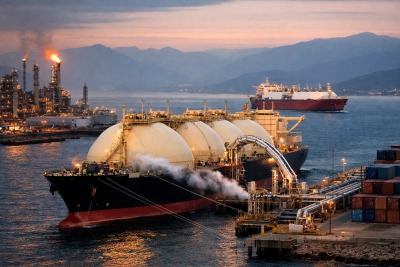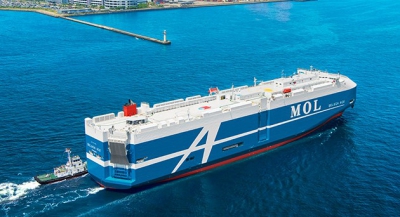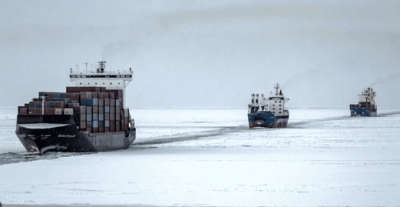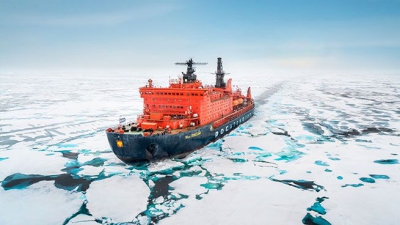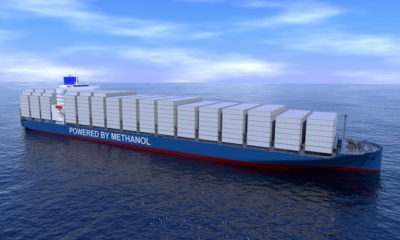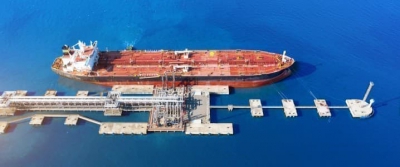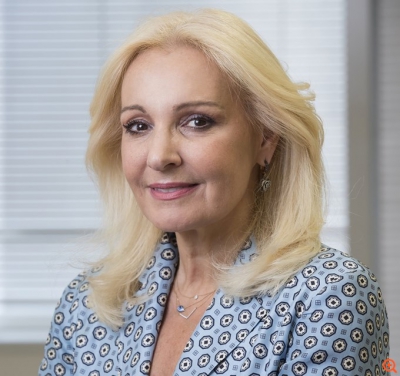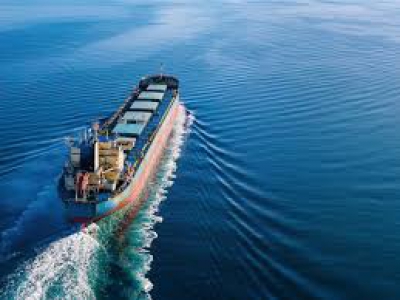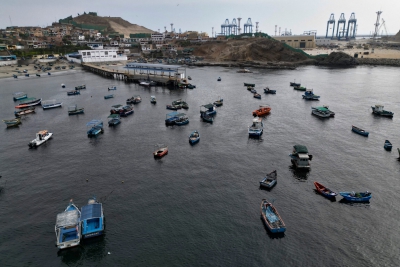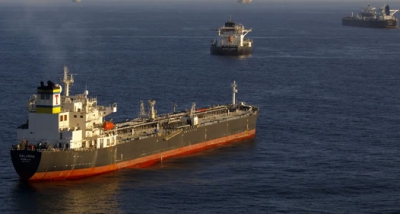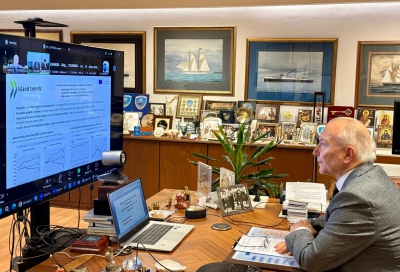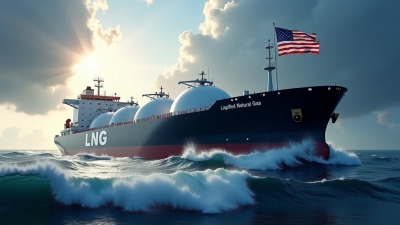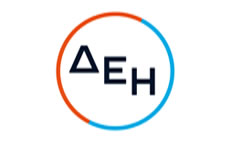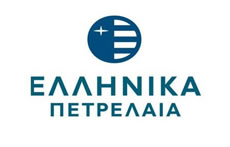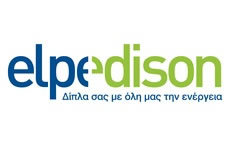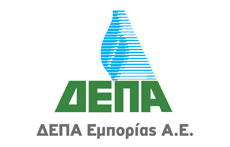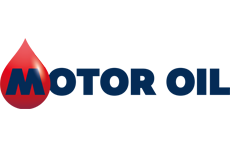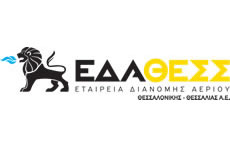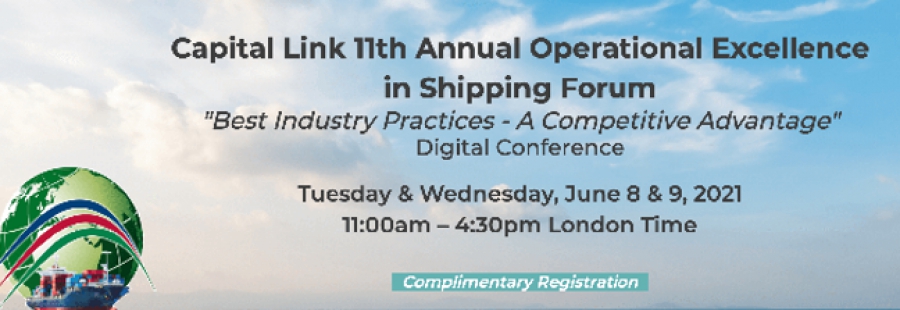
Μεγάλη Επιτυχία Με τη Συμμετοχή Κορυφαίων Παραγόντων της Ναυτιλίας από Όλο τον Κόσμο - 2 Ημέρες – 17 Ψηφιακές Ενότητες – 80 Ομιλητές από την Παγκόσμια Ναυτιλία
Το “11th Annual Capital Link Operational Excellence in Shipping – Best Industry Practices Forum” πραγματοποιήθηκε με μεγάλη επιτυχία την Τρίτη & την Τετάρτη, 8 & 9 Ιουνίου, 2021 από 11:00πμ – 4:30μμ Ώρα Λονδίνου σε ψηφιακή μορφή.
Σε διάρκεια δύο ημερών, πραγματοποιήθηκαν 17 ψηφιακές ενότητες, και 80 ομιλητές από την παγκόσμια ναυτιλία, συμμετείχαν στα πάνελ συζητήσεων και παρουσιάσεων.
Το Συνέδριο παρουσίασε την Επιχειρησιακή Αριστεία στον Τομέα των Θαλάσσιων Μεταφορών, και διερεύνησε τις Βέλτιστες Πρακτικές στη ναυτιλία, σε όλους τους σημαντικούς της τομείς, καθώς και τη Βιωσιμότητα. Τα κύρια ζητήματα που συζητήθηκαν ήταν οι προκλήσεις που αντιμετωπίζει ο χώρος και ο βαθμός ετοιμότητας που διαθέτει για την αντιμετώπιση των χαρακτηριστικών της νέας εποχής που έρχεται, η μεταμόρφωση της ναυτιλίας κατά τη διάρκεια της Covid-19 εποχής και πως αυτή μπορεί να χρησιμοποιηθεί προς όφελος της διαχείρισης του στόλου. Επιπλέον, συζητήθηκαν ο αντίκτυπος της τεχνολογίας στην αποτελεσματικότητα και στην κερδοφορία, οι ανάγκες των πληρωμάτων & η κρίση των πληρωμάτων, ο ανθρώπινος παράγοντας επάνω στο πλοίο και η σπουδαιότητα της ευημερίας του πληρώματος. Επίσης, η βαρύτητα της σωστής διαχείρισης της κυβερνοασφάλειας και οι συνέπειες από την έλλειψη της ασφαλούς διαχείρισης, καθώς και η μείωση των εκπομπών διοξειδίου του άνθρακα και η προσαρμογή της διαχείρισης του στόλου με στόχο τη συμμόρφωση με τις νέες κανονιστικές ρυθμίσεις.
Κύριος Ομιλητής του Συνεδρίου ήταν ο κ. Kitack Lim, Γενικός Γραμματέας του Διεθνούς Οργανισμού Ναυτιλίας (ΙΜΟ), ο οποίος τίμησε το Συνέδριο πραγματοποιώντας την Εναρκτήρια Ομιλία.
Η Εισαγωγική Ομιλία σχετικά με το ζήτημα της κρίσης των πληρωμάτων – ένα παγκόσμιο πρόβλημα το οποίο αφορά Διεθνείς Οργανισμούς, Εθνικές νομοθεσίες, Ναυλωτές, Πλοιοκτήτες και άλλους, ειδικά και λόγω της πρόσφατης επιδημικής κρίσης στην Ινδία, πραγματοποιήθηκε από τον Υφυπουργό Ναυτιλίας της Κύπρου, κ. Βασίλειο Δημητριάδη.
Ο Dr Grahaeme Henderson OBE, Senior Vice President, Shipping & Maritime - Shell International Trading and Shipping Company Limited, πραγματοποίησε την Κύρια Ομιλία σχετικά με ένα εξίσου πολύ σημαντικό ζήτημα: Την ασφάλεια για τους ναυτικούς, τα πλοία, τα εμπορεύματα και το περιβάλλον έτσι ώστε να επιτευχθεί στο μέλλον μηδενικός αριθμός ατυχημάτων.
Το Συνέδριο έκλεισε με τους Επικεφαλής των μεγαλύτερων Νηογνωμόνων, οι οποίοι μοιράστηκαν τις πολύτιμες γνώσεις τους σχετικά με τον σημαντικότατο και συμβουλευτικό ρόλο που διαδραματίζουν στη ναυτιλία, καθώς και την ανάγκη που υπάρχει για την αξιοποίηση σημαντικών πρωτοβουλιών που μπορούν να βοηθήσουν την αγορά στην αντιμετώπιση των προκλήσεων αναφορικά με τη συμμόρφωση με τους περιβαλλοντικούς κανονισμούς, την ασφάλεια των πλοίων, τις νέες τεχνολογίες, τη σωστή διαχείριση, τη διοίκηση του ανθρώπινου δυναμικού και άλλα.
Η ψηφιακή μορφή του Συνεδρίου έδωσε τη δυνατότητα συμμετοχής σε ένα παγκόσμιο κοινό και καθιστά αυτήν την προσέγγιση εξαιρετικά αποτελεσματική για όλους παράγοντες της ναυτιλίας. Διεξήχθησαν ψηφιακές συζητήσεις σε πραγματικό χρόνο.
ΘΕΜΑΤΟΛΟΓΙΑ ΤΩΝ ΠΑΝΕΛΣ ΣΥΖΗΤΗΣΕΩΝ & ΤΩΝ ΠΑΡΟΥΣΙΑΣΕΩΝ
ΠΡΩΤΗ ΗΜΕΡΑ – ΤΡΙΤΗ 8 ΙΟΥΝΙΟΥ, 2021
ΕΙΣΑΓΩΓΙΚΑ ΣΧΟΛΙΑ: κ. Νίκος Μπορνόζης, Πρόεδρος της Capital Link
O κ. Νίκος Μπορνόζης, καλωσόρισε τους χορηγούς, τους συμμετέχοντες και τους ομιλητές στο “11th Annual Capital Link Operational Excellence in Shipping Forum”. Και συνέχισε δηλώνοντας: “Όπως δηλώνει ο τίτλος του, το Συνέδριο εστιάζει στις Βέλτιστες Πρακτικές του κλάδου σε όλους τους σημαντικούς τομείς της ναυτιλίας και πως οι Βέλτιστες Πρακτικές λειτουργούν ως πλεονέκτημα. Και φέτος έχουμε μία πολύ περιεκτική ατζέντα με κορυφαίους παράγοντες της αγοράς στα πάνελ συζητήσεων και των παρουσιάσεων, και σε διάστημα δύο ημερών, θα έχουμε την ευκαιρία να συζητήσουμε σε βάθος μια σειρά από επίκαιρα κρίσιμα ζητήματα που αντιμετωπίζει η ναυτιλία. Θα ήθελα να ευχαριστήσω τους χορηγούς, τους φορείς υποστήριξης και τους media partners, για τη συμβολή τους στη μεγάλη επιτυχία αυτού του Φόρουμ καθώς και την ομάδα της Capital Link για τη διοργάνωση του Συνεδρίου. Κλείνοντας, θα ήθελα να αποτίσω ιδιαίτερο φόρο τιμής στον κ. Kitack Lim, Γενικό Γραμματέα του International Maritime Organization (IMO), ο οποίος τιμά και το φετινό Συνέδριο με την παρουσία του, θα μας μεταδώσει την πολύτιμη γνώση του και θα πραγματοποιήσει την εναρκτήρια ομιλία του Συνεδρίου.”
ΚΥΡΙΑ ΟΜΙΛΙΑ
κ. Kitack Lim, Secretary General - International Maritime Organization (IMO)
κ. Kitack Lim, Secretary-General of the International Maritime Organization (IMO) stated in his keynote address that following the immense socio-economic impact of the pandemic on the shipping industry, it was time to pave the way for a re-imagined future of the maritime industry. He highlighted that shipping had an opportunity to drive a green recovery and ensure a sustainable maritime future. To keep pace with the demands of the global economy and the expectations for sustainable growth, the maritime world needed to be in the forefront of transformational change, with the key to shipping’s transformation being increased digitalization as well as the decarbonization of shipping.
The benefits of digitalization and automation needed to be harnessed to full advantage – while ensuring user needs were taken into account. The wider endorsement of the maritime single window concept, the implementation of e-navigation as well as port call optimization were needed to strengthen efficiencies of maritime trade to benefit the supply chain. The maritime industry had all these opportunities, and how they were developed would shape its future.
Confronting climate change and navigating the course of decarbonization was also going to transform shipping. IMO Member States, in 2018, adopted the initial GHG strategy with a clear goal to phase out GHG emissions from shipping. The need to decarbonize would impact ship design, operation and future fuels. Significant investment in R&D, and infrastructure would be needed to achieve this goal. Therefore, IMO was collaborating with a range of partners to further promote and accelerate research and development into low- and zero-carbon marine fuels. Collaborative actions to strengthen partnerships, build capacity and accelerate innovation were key to making sure no country was left behind when it comes to shipping’s decarbonized future.
κ. Lim concluded that everyone had a part to play to push innovative thinking to develop and implement solutions to combat climate change and to push forward digitalization. Cooperation and collaboration of all maritime stakeholder would be needed to develop innovative solutions for the green and sustainable maritime sector of the future.
ADDRESSING INDUSTRY CHALLENGES – INDUSTRY PREPAREDNESS FOR THE
ROAD AHEAD
The main industry associations work independently and together providing guidance and support to the shipping industry and mapping its response to the geopolitical, regulatory & market developments that affect shipping today. The panel highlighted what these organizations are working on and how they address the changing needs of the industry.
Συντονιστής: κ. Knut Ørbeck-Nilssen, CEO – DNV Maritime
Ομιλητές:
- κα. Sabrina Chao, President – BIMCO
- κ. Dimitris Fafalios, President – INTERCARGO; President - Fafalios Shipping
- κ. Guy Platten, Secretary General – International Chamber of Shipping (ICS)
- κ. Paolo d’Amico, Chairman – INTERTANKO; Executive Chairman & CEO - d’Amico International Shipping
- κ. Mark O’Neil, President – INTERMANAGER; President & CEO – Columbia Shipmanagement
- κ. John Butler, CEO – World Shipping Council
O κ. Knut Ørbeck-Nilssen, CEO – DNV Maritime, τόνισε: “Shipping’s commitment to the vision of greener and more efficient operations is close to tipping point. The pressure to decarbonize and digitalize is now not only a matter of regulatory compliance. It is now too an imperative for charterers, cargo owners, financiers and members of the public – not to mention regional and national lawmakers.
“The whole value chain of shipping is sitting up, paying attention, and demanding progress towards the greenhouse gas goals set by the IMO, whose 2050 deadline is increasingly the subject of challenge and debate.
“Several industry and geopolitical giants are lobbying for an accelerated transition. Adopting new fuels and new technologies is the only route to 2050 – their combined benefit is irrefutable. And yet new fuels and technologies are creating a new risk landscape, adding to an already complex operating environment. Remember: progress without safety is no progress at all.
“The gulf between the current safety risk picture and our ambitions towards increased digitalization and decarbonization is creating a looming safety gap. The longer we wait to identify and address these safety concerns, the more the safety gap will grow – the more we put in jeopardy our assets, our crew, our environment and our progress towards the smarter and greener future we all desire.
“Take for example carbon neutral fuels like Hydrogen and Ammonia. While they occupy a great deal of headline space, big questions still linger about their viability - questions around safe storage, fit-for-purpose engines, a workforce trained for their safe handling, and the absence of a regulatory framework.
“Increased digitalization, too, offers huge benefits – we know that innovative technologies and valuable data drive enhanced efficiency, safety and cost controls. But here too questions endure around a lack of standardization, a growing vulnerability to cyber-attacks and systems complexity.
“We all understand that decarbonization and technological progress must move with pace and determination. So, from a safety perspective, we simply cannot afford serious incidents which threaten to stymie industry advancement.
“What we need now are fewer warm words and unrealistic declarations, and more collaborative action towards innovation, piloting, and testing of these new fuels and technologies on which the industry is hinging its hopes for the future.”
On how ships would comply with IMO’s MEPC76’s adoption later this month, Ms. Sabrina Chao, President – BIMCO, stated that the main challenge was to establish HOW a ship shall comply, referring to by power limitation of the main engine, by adding certain efficiency improving features, by de-rating the main engine etc. Classification societies together with technical departments of ship owners/managers would have to work closely and quickly to meet the deadlines.
On the biggest safety risks as the industry adjusting towards the IMO 2030 target, Ms Chao responded that the industry was well underway to meet and exceed the 2030 target by a variety of efficiency improving changes, namely with the adoption of EEXI and CII. Whilst EEXI would have an impact through speed/power limitation, Ms Chao remained concerned with CII, as the incentive structure for the chosen metric to calculate CII – the AER – was ambiguous. One could improve CII by lowering emissions, one could also improve CII by increasing emission. CII could conflict with commercial contractual obligations and charterers may not find it beneficial to allow ships under their control improve their CII as required by regulation.
On the question of pandemic and what industry could do more of, Ms Chao gave the example that BIMCO recently launched “Seafarers deserve support” to highlight the crucial role that seafarers play in society and calling on governments to step up. Ms Chao encouraged all attendants to share this short video (which can be found on YouTube) as widely as possible to reach governments and beyond.
On decarbonisation target, Ms Chao opined that the advent of the solutions to build and operate decarbonised ships would not be driven by more aggressive targets, but by solutions and actual change in the industry. Because shipping industry is committed to decarbonise, we are already in solution mode!
O κ. Dimitris Fafalios, President – INTERCARGO; President - Fafalios Shipping, τόνισε: “The shipping industry’s path to a low or zero carbon future relies on a deep understanding of the industry by it’s regulators and the modus operandi of its various sectors.
Good regulation through IMO should prioritise effective Greenhouse Gas (GHG) reduction policies and at the same time and with equal priority, the safety of vessels and seafarers when applying these policies.
All stakeholders involved, shipowners, charterers, shipbuilders, engine designers, ports, terminals and fuel suppliers should be regulated in a way that GHG reduction can be global, coordinated, smooth and effective.
Future proofing ships in the dry bulk tramp trade is extremely challenging as necessary fuels and technologies are in their infancy. Long-term chartered ships will need different solutions to spot market bulkers. The latter are trading worldwide with no fixed itinerary.
The necessity for a research and development fund through the IMO in the short-term may have to be supplemented by a medium term market based measure MBM, such as an equitable fuel levy per tonne of fuel or per tonne of C02.
With over 12,000 vessels in the global dry bulk fleet this is the largest single sector both in numbers of vessels and total deadweight. Dry bulk carriers are also the most GHG efficient method of transporting vital, large cargoes over long distances.
The dry bulk fleet wishes to decarbonize as quickly as possible but cannot do so alone.
Intercargo represents it’s member bulk carrier operators comprising about 140 companies from 30 countries with about 2,300 vessels. Representing over 19% basis numbers and about 24% basis dwt of the global dry bulk fleet, Intercargo attends IMO and other regulatory bodies to help achieve practical and effective regulation on GHG reduction and safety.”
O κ. John Butler, CEO – World Shipping Council Council, τόνισε: “We are at a pivotal time in terms of being able to craft an effective and efficient path towards decarbonisation for the shipping industry. Industry and regulators all have a part to play.
The industry is committed to decarbonisation and ready to do our part. Today shipping is still in the innovation phase, where measures are needed to accelerate the development of zero-carbon technologies for deep-sea vessels. The industry-financed R&D fund now proposed in the IMO will help make these options available sooner, in an equitable way. And the sooner we do that essential research and development work, the more effective any carbon pricing tool will be in driving the adoption of those technologies. We need both the R&D fund and carbon pricing, and the order is important.
The international maritime transportation system drives the world economy. World trade and the world’s economies cannot afford a chaotic decarbonisation of shipping. Nor can time be lost in effectively tackling the challenge. We therefore invite all governments to show engagement and climate leadership on the international stage, through support for the IMRB at the UN IMO. The shipping Industry is willing to take the cost and do the work to meet the climate challenge, but we can only move forward with political support.”
OPTIMIZING FLEET MANAGEMENT IN THE POST COVID-19 ERA – Lessons Learned & Experiences Gained
Covid-19 accelerated the pace of transformation as the industry fulfilled its role of keeping the global supply chain uninterrupted, linking producers and consumers across the globe. Several of the lessons and experiences learned while combating the crisis can now continue to be implemented optimizing fleet management.
Συντονιστής: κ. Michalis Pantazopoulos, Managing Director - LISCR (Hellas) S.A. – The Liberian Registry
Ομιλητές:
- κ. Gerry Docherty, Director, Fleet Management - Ardmore Shipping Services
- κ. Dimitris Vastarouchas, Deputy Chief Operating Officer & Technical Director – Danaos Corporation
- κ. Claus Usen Jensen, Director of Technical Management - Eagle Ship Management
- κ. Stamatis Bourboulis, General Manager – Euronav Ship Management (Hellas)
- κ. Guido Olislagers, Managing Director – EXMAR Shipmanagement
- κ. George Saroglou, Chief Operating Officer – Tsakos Energy Navigation Ltd.
O κ. Michalis Pantazopoulos, Managing Director - LISCR (Hellas) S.A. – The Liberian Registry, τόνισε: “Whilst the shipping industry quickly adapted, adjusted and continued the supply chain and trade worldwide when the pandemic appeared, the challenges due to COVID-19 still exist today. The experience of all shipping market sector (containers, bulk carriers, tankers, and gas carriers) during the last year, covering the shipmanagers, the crew prolonged stay onboard, the remote communications with the ship, the interaction with other stakeholders (Flag, Class, charterers, etc.) were discussed together with the existing challenges of today. New ways of communications, distance training, savings due to elimination of travelling were some of the positive aspects that were established and would be followed as ongoing practices now and in the future, whilst the issues as crew changes and repatriation, the lack of worldwide designation & enforcement of seafarers as “key workers”, and vessel maintenance and shipyard attendance are existing issues that remain unresolved.”
κ. Dimitris Vastarouchas, Deputy Chief Operating Officer & Technical Director – Danaos Corporation, a company operating containerships, stated that Covid-19 affected shipping business raising a number of issues, but the company was able to keep an "eye" on ship's operation and remain alerted without having major disruptions during the crisis, owed to the investment in IoT and data analytics that initiated 7-8 years ago, allowing a 24/7 performance monitoring without any loss of critical data.
According to Mr Vastarouchas, the immediate impact of Covid-19 on travel created difficulties on physical attendance and access onboard, inspections, dry docking and major modification delays and despite the contribution of most parts to the smoothening of situation, the crew changes and physical attendance still remain at worrying levels, causing uncertainty about ship's maintenance and condition. Mr Vastarouchas highlighted that once again technology offered solutions through the use of digital media, by instructed inspections by the crew, accompanied by web meetings, media sharing covering half of the planned inspections and audits, while in similar way, the external surveys were carried out smoothly with the cooperation of 3rd parties. Moreover, Mr Vastarouchas stated that despite the people’s resistance to change,
the technology contributed significantly in keeping operations active and setting new culture, pushing the industry forwards with confidence and consistency.
Mr Vastarouchas said the remote work widens the horizon of people engagement and interaction, eliminating distance and time, while knowledge sharing was reinforced through webinars and online presentations enabling to keep the moral high and enhance knowledge and motivation. Moreover, the fact the company has her own manning offices, allowed the rapid development of remote functions in crew training, augmented reality and soon, virtual reality, participation in workgroups, surveys and seminars, while offering the opportunity to reduce transportation cost and emissions by eliminating unnecessary crew travelling.
Finally, Mr Vastarouchas stated that companies soon or later will be so tuned and digitalized, as to be ready to participate in various blockchains that will fine tune and improve the whole trade chain. According to Mr Vastarouchas statement, since technology and AI are here to stay, Danaos makes a strong turn to the future by proceeding in full internal functions’ digitalization and enhancing both remote crew and office personnel training, creating new organizational and operational structures, communication approaches, blockchains, and joint efforts with other stakeholders to improve performance, educate people, control emissions and preserve industry's sustainability.
κ. Stamatis Bourboulis, General Manager – Euronav Ship Management (Hellas), stated that although we are optimistic after dealing with COVID 19 pandemic for over a year, the challenges are still present. However, this does not prevent us to evaluate how shipping reacted, to identify what lessons can be learned and which of them could be incorporated to the new norm in the post COVID 19 era.
As he said shipping maintained successfully its role as the main link to the global supply chain, despite the serious obstacles which were mainly related to the difficulty of the crew changes. This happened mainly thanks to the resilience demonstrated by the seafarers, who were adapted to the conditions of prolonged service on board and repatriation uncertainty being supported by the shore organization, but also the business continuity was greatly assisted by the available communication technology that filled the gap of the imposed physical isolation very efficiently.
He highlighted that due to the pandemic, an enormous spread of the technological applications was observed, creating the main platform for the business activity across shipping and beyond. This compensated the loss of the physical contact through a considerable increase of the capability for more frequent and quite effective web based live communication, irrespective of distance.
Bourboulis believes that in the post COVID 19 era, this gained experience of highly efficient remote communication will continue to be utilized, bridging the gap between the ship and the shore staff, complementing the need of physical meetings, training and surveys through remote activities which will in addition include the exchange of electronic documentation etc.
At times of serious consideration of CO2 emissions reduction, the new standards of remote connectivity, achieved as a side effect of the COVID 19 pandemic, will reduce the need of travel, opening new opportunities to persons and businesses.
SHIPPING IN THE AGE OF TECHNOLOGICAL TRANSFORMATION – PRIORITIZING
AMONG SO MANY NEEDS & SO MANY OPTIONS
Technical, commercial, and corporate operations are optimized through technology with impact on efficiency and profitability. Shipping companies are called to make choices and investment decisions prioritizing among the various areas. This panel discussed how shipping companies evaluate and prioritize their investments taking into consideration
regulatory requirements and market expectations and conditions.
Συντονιστής: κ. Pino Spadafora, Marine Commercial Senior Director - RINA
Ομιλητές:
- κ. Salvatore d’Amico, Fleet Director – d’Amico Shipping Group
- κ. Ernst Meyer, COO - Klaveness
- κ. Mark Martecchini, Managing Director – Stolt Tankers
- κ. Christopher Schröder, Sales Director at Wärtsilä Voyage
Ο συντονιστής, κ. Pino Spadafora, Marine Commercial Senior Director – RINA, τόνισε: “The panel focused on how maritime companies evaluate and prioritize their investments taking into consideration regulatory requirements and market expectations and conditions.
As the discussion progressed, the panelists talked about the future challenges of shipping businesses and the benefits provided by innovative technology solutions. The panel also addressed other topics of high interest to marine stakeholders, and the debate centered on how the adoption of advanced digital technology can drive operational efficiency and optimize business processes in the industry.”
Christopher Schröder, Sales Director at Wärtsilä Voyage, asserted that digital transformation can only be driven by solid value proposition. He expressed that only when we can demonstrate the immediate and long-term quantifiable economic values such as reduced fuel consumption, reduced environmental impact and enhanced safety, then we will get true buy in.
Its implementation, however, requires an ongoing partnership between customer and technology provider. ‘When it is a question of how to enhance the running of a vessel or fleet, data helps us to continuously learn, improve and update – this is a journey to be taken together.’
As a big player in the market, Wärtsilä has noted that the lack of systemic digitalization and standardization is now receiving more attention from customers. ‘This is because they increasingly understand there are huge gains to be made through digital consolidation with solutions that create synergies between all stakeholders in the shipping value chain.’
‘For example, the industry is waking up to the need for common platforms that not only allow crews, fleet operators and managers to discuss operations via common datasets - these synergies can and will eventually transcend borders to include ports and hinterland logistics, creating a seamless and sustainable global chain.’
With this in mind, it is not the governmental nor regulatory bodies who will drive digital transformation claims Schröder. 'It is increasingly about us as discerning consumers and citizens who vote for ecofriendly economies. The decarbonisation of shipping is no longer about IMO deadlines set on a future date. Mounting societal pressure to reveal detailed emissions data is tightening enforcement of regulations and putting a new light on ESG financing.'
To that end, digitalisation enables full transparency on the connection of ship operations and emissions, it enables dynamic fuel efficiency improvements and supports shipowners and operators in boosting their green credentials by ensuring their assets remain sustainable and commercially viable across their lifetimes. And herewith lies the value driver for digital transformation.
CREWING – THE CRISIS CONTINUES – IS THERE AN END IN SIGHT?
The crewing crisis is a global issue – but the implementation involves international organizations, national jurisdictions, charterers, shipowners and more. The recent crisis in India has elevated the crewing crisis to a new height. The current situation shows the urgency and importance to coordinate all stakeholders into streamlining policy making at
an international level and achieving implementation across the board. Is this possible – and how can be it done so we can move from discussion to resolutions?
ΕΙΣΑΓΩΓΙΚΗ ΟΜΙΛΙΑ
κ. Vassilios Demetriades, Deputy Shipping Minister – Republic of Cyprus
The International Labor Organization adopted in April 2021 a resolution endorsing the global vaccination program proposed by the Republic of Cyprus, which was the first country to submit such a proposal as part of an effort to help alleviate the global crew crisis.
PANEL DISCUSSION
Συντονιστής: κα. Antonia Panayides, Partner – Reed Smith
Ομιλητές:
- Bjorn Hojgaard, Chairman - Hong Kong Shipowners Association, CEO - Anglo-Eastern Univan Group
- κ. Rene Piil Pedersen – Managing Director, Head of Marine Relations – P. Moller Maersk
- κ. Guy Platten, Secretary General – International Chamber of Shipping (ICS)
- κ. Stephen Cotton, General Secretary – International Transport Workers’ Federation (ITF)
- κ. Polys Hajioannou, CEO – Safe Bulkers, Inc.
Ο Capt. Bjorn Hojgaard, Chairman - Hong Kong Shipowners Association, CEO - Anglo-Eastern Univan Group, τόνισε: “The pandemic burning through India these past couple of months has been heartbreaking, leaving in its wake personal stories of tragedy and despair. Crew operations have not been spared, with many countries denying access to travellers from certain places, thus making crew changes extremely challenging again. Coupled with manning offices stretched to breaking point, also hit by infections as well as lockdowns, and it’s a grim cocktail that is bound to ripple through our industry for months.” The solution, he noted, is two-fold: seafarers must be given priority access to vaccines, while countries with entry restrictions need to differentiate between vaccinated and non-vaccinated travellers. “Some companies are now trying to shift the nationality of seafarers on board in response to affected supply countries, but seafarer supply is not a faucet you can simply open in one place and close in another. It takes years to develop competencies and experience.” There is some light at the end of the tunnel, however, with CDC-approved clinics in the US offering vaccination to foreign seafarers, and other countries likely to follow suit. “With the uptick of vaccination in home countries and the opportunity to get vaccinated while calling on foreign ports, I estimate that 50% of seafarers on our ships will be fully vaccinated sometime in August or September,” said Capt. Hojgaard of Anglo-Eastern’s fleet. “That will greatly help in keeping Covid away from the fleet, and reduce the stress and anxiety of trading across the world and being exposed to workers in foreign ports. But for the crew change crisis to abate, we need vaccinated travellers to be exempted from the blanket ban we are now seeing for many crew supply countries,” he emphasised. “That takes global political leadership – something the last 18 months or so have shown is sadly in short supply.”
κ. Polys Hajioannou, CEO and Chairman of the Board of Safe Bulkers Inc., (NYSE:SB) noted the single most important operational challenge for shipping companies continues to be the inability to conduct timely and cost efficient crew changes due to Covid pandemic. Hundreds of thousands of seafarers are still waiting to be repatriated after many months on board. Relieving crews is a humanitarian imperative. Safe Bulkers will continue to raise awareness amongst the key players mainly charterers, ship owners, governments and international regulators to share responsibility and work in tandem to address the crew crisis.
Covid is here to stay in one form or another for a few more years. Increasing crew fatigue is inevitably leading to mental health issues on board in harsh ocean environments, and hence increased risk for serious maritime accidents. As the vast majority of our workforce comes from developing nations whose access to vaccines is challenging we should focus on the supply chain to continue. The goal should be to find solutions such as the priority access to vaccination of seafarers in their home countries under the key worker status as advocated by IMO.
Let’s all increase our collaboration, share costs, facilitate crew changes and address the unprecedented challenges created by the pandemic.
ADDRESSING THE SHIPPING INDUSTRY’S CREWING NEEDS NOW & BEYOND
COVID-19 – Short Term Responses & Longer - Term Pursuits
Difficulties in crew changes, addressing the well-being of the crews and dealing with crew restrictions when it comes to drydocking and newbuilding deliveries are among the challenges shipping companies face today. Looking ahead, beyond the need to respond to challenges presented by the current crisis, shipping companies aim to ensure the longterm
availability of seafarers, who are the backbone of the shipping industry. The panel discussed how major companies look at the global crewing landscape (including major hubs, such as the Ukraine, the Philippines, India, Indonesia and China) and what needs to be done to ensure an adequate supply of seafarers.
Συντονιστής: Captain Robert Fay, Senior Vice President, Maritime Operations – IRI/The Marshall Islands Registry
Ομιλητές:
- κ. Dennis Svane Hansen, Vice President, Group Crewing Services – BW Group
- Captain Panagiotis Drosos, Chief Operating Officer - Capital Maritime
- κ. Prabhat Kumar Jha, Group Managing Director & CEO – MSC Shipmanagement Limited Cyprus
- κα. Angie W. Hartmann, Executive Vice President-Crew Affairs – Star Bulk Carriers
- Captain Zhou, Managing Director – Wah Kwong Maritime Transport Holdings
Captain Robert Fay, Senior Vice President, Maritime Operations – International Registries, Inc., and its affiliates (IRI), which provide administrative and technical support to the Republic of the Marshall Islands Maritime and Corporate Registries, moderated the panel on “Addressing Crewing Needs Now & Beyond COVID-19” as part of the 11th Annual Capital Link Operational Excellence in Shipping Virtual Conference on 8 June 2021. Ομιλητές for the session included κ. Dennis Svane Hansen, Vice President, Group Crewing Services, BW Group; Captain Panagiotis Drosos, Chief Operating Officer, Capital Maritime; κ. Prabhat Kumar Jha, Group Managing Director & CEO, MSC Shipmanagement Limited Cyprus; and Captain Zhou, Managing Director, Wah Kwong Maritime Transport Holdings.
Captain Fay thanked the distinguished panelists for their keen insights and valuable input concerning the pressing need to prioritize seafarers’ welfare and training to assure an uninterrupted flow of qualified officers and crew for the future. The challenges of the past year have shown quite clearly that well-trained and dedicated seafarers are needed more than ever to keep the global fleet moving to maintain vital supply chains. It is incumbent on all parties, both in the maritime and global transportation industries, to recognize seafarers as essential workers and continue to push for a global vaccination program for all maritime personnel. In addition, politicians, customs, immigration, and transportation officials around the world need to assist and cooperate to allow the expedited flow of seafarers to and from vital cities and ports. Without a sufficient supply of trained and qualified seafarers moving ships and goods around the world, we could face a global economic crisis.
Captain Fay asked the panelists to highlight any positive changes that may have come from the difficulties faced in crewing over the past year. All agreed that the cooperation found among stakeholders to allow for extended certification of seafarers and the increased acceptance of computer based and on-line training for seafarers has been most welcome.
Captain Fay summed up the panel by stating that, “Greater concern for the welfare of seafarers and cooperation between maritime stakeholders including vessel owners, operators, managers, flag States, port States, seafarer unions, and training institutions has been a significant factor in weathering the COVID-19 storm and is something we sincerely hope will continue in the future.”
Ο Captain Panagiotis Drosos, Chief Operating Officer - Capital Maritime, τόνισε: “At Capital, we consider the human element a founding pillar of the shipping industry. Our approach creates an incentive for our company to inquire about the ways in which maritime health and safety and safety of navigation can be enhanced; to ensure and concurrently promote the mental, physical and material welfare of our employees onboard and ashore and their respective families, during these times of uncertainty.
During unprecedented circumstances, some 400,000 seafarers from across the globe became stranded on ships, continuing to work but unable to be relieved, in a deepening crew change crisis that threatened global trade and maritime safety. The need for emphasis on preventive security, risk management, deterrence, and threat transfer, raising global standards, and setting norms for the mental and physical health and safety, security, and efficiency of seafarers and crew changes is now apparent and imminent. The continuing inability to conduct crew changes has been the single greatest operational challenge confronting the global shipping industry since World War II.
There is growing recognition that seafarers’ duties cannot be extended indefinitely and that the current situation is unsustainable. Such concerns were raised by the IMO itself, an avid advocate of seafarer welfare, through its continuing work on issues such as fatigue, fair treatment and liability, and compensation for seafarers. Indeed, most of the Sustainable Development Goals (2030 Agenda) elements can only be realized with a sustainable transport sector supporting world trade, facilitating the global economy but above all ensuring the safety and prosperity of its vital components; seafarers. The prominent notion of recognizing seafarers as key workers require unequivocal support from all relevant parties, particularly governments. It is a catalyst to resolving the crewing change crisis, therefore allowing room for long-term planning and pursuits.”
Ο Captain Zhou, Managing Director – Wah Kwong Maritime Transport Holdings, τόνισε: “Besides travel restrictions and lock downs which have caused crew shortage, a lack of attention to crew welfare is becoming another important reason causing seafarer shortage. We need a unified and clear protocol on crew change and protecting seafarers during their port stay. Currently the mobility and welfare of seafarers are in a dire situation - many seafarers feel ignored and they are reluctant to join the ship; while those who are already on board are anxious about being infected at high-risk ports, and worried about when they can return to their families.
The essential status of seafarers as “key workers” should not be just empty words. Seafarers should be given priority for care, vaccinations, and access to the special corridor for crew change. All relevant parties should respect and support the appropriate protective measures implemented onboard during port stay and should provide adequate resources.”
FOCUSING ON THE HUMAN FACTOR & THE WELLFARE OF SEAFARERS
The panel discussed Mental Health Issues, Catering, Benefits Package, Training & more.
Συντονιστής: κ. Mark O'Neil, President - Columbia Shipmanagement; President - InterManager
Ομιλητές:
- Captain Faouzi Fradi, Group Crewing and Training Director – Columbia Shipmanagement Ltd
- κ. Costas Joannides, Chief Executive Officer - Marsh Cyprus
- κ. Christian Ioannou, Founder and Managing Director – MCTC Marine Ltd
- κ. Christian Ayerst, Chief Executive Officer - Mental Health Support Solutions
- (MHSS)
- κ. Nigel Cleave, Senior Advisor - OneLearn Global Ltd.
Captain Faouzi Fradi, Group Crewing and Training Director – Columbia Shipmanagement Ltd, stated that the maritime industry has opened its eyes to many issues during the pandemic most of them were human and technology centric. The crew change crisis has taught us the level of sacrifice and commitment of our seafarers and how we should respond to their needs in a holistic approach. A happy crew makes a happy ship. Therefore at Columbia we have made our utmost efforts to ensure in a record time that our seafarers have access to a state-of-the-art eLearning platform offering highly interactive and bespoke content available online and offline on any device which delivers customized, specific and practical training. Besides, they have access to full package provision services which include food management, training, menus and remote support plus a strictly controlled selection of provision supplies across the World. As we believe that crew wellbeing is a key to safer ships operations, our ships have access to a free 24/7 hotline for Mental Health Support which among others offer counselling, crisis management, educational approach and resilience training. In addition we have provided our crew with fitness kits. Last but not least, the CrewCare service includes individual life insurance products at a very attractive rate offered by a reputable insurance company. All seafarers regardless of their nationality or country of residence have full access to all our solutions which aim at CARING FOR OUR PEOPLE. Very soon we will also enable offline entertainment package onboard ships, including latest movies and documentaries as well as Online shopping solutions, which we believe will alleviate the effects of shore leave restrictions that were imposed because of the pandemic.
Ο κ. Christian Ioannou, Founder and Managing Director – MCTC Marine Ltd, τόνισε: “Maritime industry employees have become far more knowledgeable and understanding in recent years about the importance of food preparation and nutrition for seafarers. That’s according to Christian Ioannou, Managing Director of MCTC, the international catering management and training provider.
Speaking at the 11th Annual Capital Link Operational Excellence in Shipping Forum, Mr Ioannou said that interest in nutrition, healthy diets and the relationship between food and mental/physical health had increased significantly since he launched MCTC in 2013.
“When setting up MCTC, I spoke to many people in the industry and no one was talking about healthy food,” he said at the ‘Focusing on The Human Factor and the Welfare of Seafarers’ panel. “Now, MCTC will host conferences with up to 400 people who want to know more about healthy eating, nutrition and how to move away from pre-prepared to freshly cooked meals.
“Catering management used to be about one thing: supplying food to vessels. Now it’s about why we provide certain foods and ingredients, and how, because supply is just a small part of what catering management companies do.
“Of course, food needs to be delivered in the best way possible, but the question we must ask ourselves is why companies like MCTC are here? Our job is to ensure everyone aboard a vessel is fed properly, which involves creating tailored, nutritious menus for different vessels and for the individuals onboard.”
Mr Ioannou added that ongoing training and education for seafarers about the benefits of eating healthily when onboard or back home was critical. “It’s absolutely vital,” he said. “When seafarers are home, we invite them and their families to learn about maintaining a nutritious, healthy lifestyle while they are ashore.
“We also have the Catering Competency Development Programme, a certified course that increases standards in the galley by training and supporting cooks aboard a vessel. It also gives them access to experienced consultants who regularly visit them onboard and provide weekly evaluations.”
κ. Christian Ayerst, Chief Executive Officer - Mental Health Support Solutions (MHSS), urged the maritime industry to look at other industries where mental health and psychology don't have a stigma attached to them - but are both normal and seen as an enhancement to performance. The shipping industry is uniquely placed to learn-from the successes (and failures ) of early-adopters of professional psychology (such as elite sport and aviation) where "positive psychology" is used to give individuals the edge. Individuals and organizations have everything to gain, and nothing to lose, by seizing the initiative.
Christian further commented on the work of MHSS: a significant increase in volume of interaction with MHSS' unique 24/7 support line - but also interactions from people asking not just for help - but how to enhance their performance and ability to work. This is significant - the call for professional psychology is being led by the end-users, and their call must not be ignored. Organizations which listen to their staff, engage independent experts and create an environment where their staff can flourish will be the winners. And only services which are carried out by experienced professionals (where psychology is essentially complex detective work), who are both relatable to users and organizations and relevant (through maritime expertise) will achieve the significant benefits: higher engagement, increased performance and productivity, reduced incidents and improved bottom-lines. These are seen both other leading industries, and must now be replicated in shipping.
Christian mentioned that the situation in India has seen a rise in the number of interactions with MHSS services - with increasing numbers of shore-staff seeking support on issues such as anxiety, misinformation and handling a rapidly changing "return to work" practice. Those working onshore are, according to Christian, the "unsung heroes" - having worked for over 18 months in incredibly stressful conditions, are at the frontline of the difficulties being faced and whose contribution has been rarely recognised. Shore staff are preferring independent expert services such as MHSS, where they feel confident seeking support, advice and improvement of their psychological fitness. An employer-sponsored program does not offer this independent expertise - and organizations and their staff will only truly flourish by bringing in professional maritime psychologists, who have the experience, passion and expertise to create an environment where everyone can thrive.
Ο κ. Nigel Cleave, Senior Advisor - OneLearn Global Ltd., τόνισε: “OneLearn Global, launched in April 2021 and created to serve the maritime, superyacht, energy, renewable energy, hospitality and industrial sectors, sees itself as truly a paradigm shift, focusing on modern-day learning techniques, aimed particularly with Millennials and the Gen Z generation in mind. They are native digital generations, champions at googling, who behave and learn differently due to their lifelong relationship with technology and who are used to having instant information and results at their fingertips.
The enormously effective and extremely powerful cloud-based next-gen Learning Management System has been designed to deliver both an enhanced and engaging, yet very personalised, enjoyable and intuitive learning experience through the use of digitalisation. Simplicity of use being the key objective, the LMS is really super-friendly.
Having started from a clean sheet of paper, OneLearn Global has had the benefit of building its content much later in time, with no legacy or baggage to worry about. This has allowed the team considerable freedom to produce what can only be described as some amazing content.
Fresh, bright, agile and really motivating, content can be viewed both offline and online, across devices to optimize the learner experience, driving engagement through certifications and award badges for positive encouragement, everything being recorded in the cloud.
Learners can collect points to compete with their peers, receive AI based recommendations, participate in social learning activities, interact with the courses and post their feedback in the discussion forums for each course. There is also an optional feature of attending virtual classrooms.
The LMS, has been designed to enhance skills development where a training matrix and competency management system are included and, unlike a physical classroom environment, OneLearn Global is available 24/7.”
FIGHTING IN THE TRENCHES – THE SHIP CAPTAIN’S PERSPECTIVE
A 1x1 Discussion with a Vessel Captain
κ. Nicolas Bornozis, President – Capital Link
Captain Rajeev Kaushik – Synergy Group
Captain Rajeev Kaushik, a Master Mariner with the Synergy Marine Group shared his insights on the various issues being faced by seafarers during the Covid 19 pandemic.
He highlighted how Seafarers have been at the fore front to keeping the world economy running in spite of the challenges and impediments arising from travel restrictions, shortage of vaccines and the limited access to shore medical facilities at various ports around the globe.
He felt that it is about time that all the stakeholders including Owners, Charterers, Governments and the regulatory bodies must come together with more than just lip service to address all the issues faced by seafarers who in turn can then continue to keep the world moving by sailing on the ships that transport some 90% of the global trade.
He expressed his appreciation and gratitude to the team in Synergy and especially the CEO Captain Rajesh Unni who has been a very dynamic force in his efforts to provide support to all the seafarers not only on the timely crew changes but also on the emotional wellbeing with free calls and counselling services through their service called WeTeam. The deep routed sense of empathy and respect for the fellow seafarers is very evident from the very top at Synergy he stated. In these stressful times where many people are contemplating leaving the profession, he was thankful for the unrelenting support from the company to tide over the crisis with ease and manage the situation on ship in a smooth manner.
Capt. Rajeev wanted to take this opportunity to thank Capt Unni and the specially created ‘Covid Task Force’ team requesting them to keep supporting the seafarers and their families as they endure the worst crisis of their careers. He also was very pleased with the efforts to get the seafarers the ‘key worker status’ for easier travel and of course the priority to get vaccinated at the earliest through the many special camps that have been organised.
Captain Rajeev finally hoped that the joint efforts of all the stake holders would ideally see a world free of Covid where things get back to normal but until then, an immediate resolution to the free and safe movement of the seafarers besides the recognition and respect they truly deserve.
RALLYING AROUND CHARITIES THAT SUPPORT THE WELFARE OF SEAFARERS
– ADDRESSING THE INDIAN CRISIS & BEYOND
The Indian COVID-19 crisis energized an industry-wide effort to create a charity fund to address the plight of seafarers and their families. The panel discussed the initiatives led by Charities to provide relief and support during the pandemic and beyond.
Συντονιστής: κ. Mark Cameron, Chief Operating Officer – Ardmore Shipping
Ομιλητές:
- κ. Vishnu Swaminathan, Co-Founder – WeTeam; Social Responsibility Advisor - Synergy group
- κ. Andrew Wright, Secretary General – Mission to Seafarers
- κα. Catherine Spencer, CEO – The Seafarers’ Charity
Η κα. Catherine Spencer, CEO – The Seafarers’ Charity, τόνισε: “The Seafarers Charity is very grateful to the shipping industry for their generous response to the Seafarers International Relief Fund. It’s enabled urgent humanitarian work to support seafarers and their families in India. The Seafarers’ Charity with our charity partners works year round to support seafarers and we look forward to working more closely with the maritime industry to see how we can explore our collaborative approach to support all those who work at sea.”
CHINESE SEAFARERS FOR INTERNATIONAL SHIPPING COMPANIES
Access to skilled seafarers remains one of the main challenges for the international shipping community and China has a large pool of skilled seafarers. Furthermore, demand for Chinese crews has increased as the result of the Covid-19 crisis. The presentation aims to update you on the significant progress achieved in maritime education in China and the improvement in the quality of Chinese Seafarers, who are gradually having an expanded presence in the fleet of international shipping companies. It discussed important issues in crew recruiting, training and retention and provided an
update on latest Chinese governmental regulations and efforts in promoting Chinese seafarers to meet international standards.
Ο κ. Terence Zhao, Managing Director – Singhai Marine Services, τόνισε: “We all know because of COVID-19, there is high demand for Chinese seafarers. Shipping companies are facing crew shortage and high wage demand.
As we hear about the pandemic continuing to spread in many countries as the virus mutate, we can see that the crisis is not over so soon. It will last longer than we hope for. The uncertainties have caused a worldwide shortage of crew supply.
From our experience, international principals who never use Chinese crew in their pool face a bigger problem. With new vessel deliveries in China, they offer short contract to tide over. At times, they waited too long in hope that their preferred nationalities can get into China. But when time runs out, they have to scramble for crew.
China has ambition to be a strong maritime country. China must maintain a steady pool of quality seafarers to support the ambition. Over the years, the central government has encouraged seafaring by heavily subsidizing school fees for maritime students. Students from poor families need not pay any school fee. In 2019, China has announced tax exemption policies for ocean going seafarers when certain requirements are met. In years ahead, we can foresee that the number of Chinese seafarers will increase as the government strongly support seafaring. Having Chinese crew in the pool is an advantage.
As we hope for the pandemic to end, countries can cooperate and make crew change easy. When there is certainty, there is less anxiety. As more population and crew are vaccinated, infection will reduce. With the availability of fast test kits, the crew can quickly identify and segregate infected crew or outside people coming on board. It will certainly reduce the risk of infection and create a safer environment. We hope by then, the crew market will find its balance.”
*** ΤΕΛΟΣ ΠΡΩΤΗΣ ΗΜΕΡΑΣ ***
ΔΕΥΤΕΡΗ ΗΜΕΡΑ – ΤΕΤΑΡΤΗ, 9 ΙΟΥΝΙΟΥ, 2021
ΚΥΡΙΑ ΟΜΙΛΙΑ – SAFETY FIRST – CHANGING THE WAY THE INDUSTRY THINKS ABOUT SAFETY
Dr Grahaeme Henderson OBE, Senior Vice President, Shipping & Maritime - Shell International Trading and Shipping Company Limited
ΠΑΝΕΛ ΣΥΖΗΤΗΣΗΣ
TOGETHER IN SAFETY – SAFETY AS A CORPORATE CULTURE & COMPETITIVE
ADVANTAGE
Shipping, one of the most vital links in the global supply chain, is also one of the most hazardous industries in the world. The shipping industry has made significant steps forward in improving its safety performance. Many companies and organizations are implementing valuable practices that are making significant differences to the safety of their seafarers, vessels, cargoes and the environment working together towards a zeroincident future. The panel discussed the practices and expectations of key stakeholders in this pursuit.
Συντονιστής: Dr Grahaeme Henderson OBE, Senior Vice President, Shipping & Maritime – Shell International Trading and Shipping Company Limited
Ομιλητές:
- κ. Paul Wogan, Chief Executive Officer – GasLog

